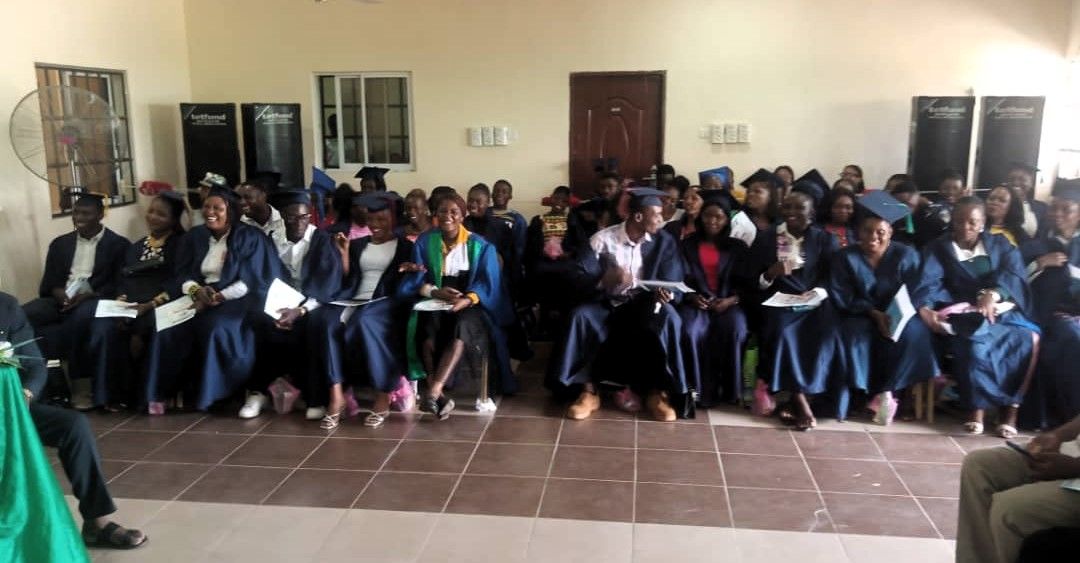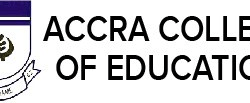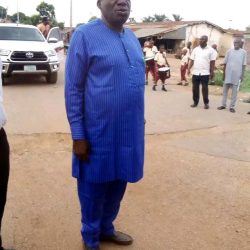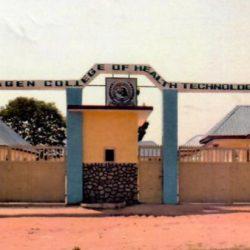The present COE is an offshoot of the CRS School of Basic Studies, Akamkpa, which metamorphosed in 1990 into the former CRS College of Education, Akampa. This former College eventually folded up with the emergence of the Cross River University of Technology and until early 2008 served as a University campus of the Faculty of Education.

By June 2008, Cross River University Faculty of Education was relocated to Calabar with the view to re-establishing a College of Education. This materialized when the principal officers, led by Prof, A Owan Enoh, were appointed for the new College of Education, Akampa, in December 2008.

The new College was established by the CRS Edict No. 4 promulgated by his Excellency, Senator Liyel Imoke, Executive Governor of CRS. With CRUTECH, the College is now one of the 2 state-owned Tertiary Institutions that offer higher but complementary programmes.
The College of Education provides the man power needs of the state in the training of highly motivated, diligent and conscientious teachers, especially in the sciences, for the Universal Basic Education (UBE) scheme in the State.


The new College of Education took off in the 2009/2010 session with 1,372 students for the NCE programme and 300 students for the Pre-NCE programme. Apart from the Pre-NCE programme, General and Remedial Studies, and the Center for Continuing Education, the College has busy academic programmes run by Six (6) schools:
School of Arts and Social Sciences
School of Education
School of Languages
School of Science
School of Vocational and Technical Studies.
School of Early Childcare and Primary Education.
There is an initial academic staff strength of 120 and 189 non-academic staff. ACADEMIC PROGRAMMES The diverse academic activities in the College are:
(A) The full time NCE programme that lasts for a minimum of three academic years and a maximum of five academic years
(B) The one academic year Pre-NCE, mainly, Science programme.
(C) The evening NCE Programme under consultancy.

LOCATION
The College of Education Akampa coexists with the people and the entire culture of Awi, Ayaebam and Mbarakom Villages. These communities are also its joint Landlords. The College is 6km from Akamkpa town and 34km from Calabar.
CLIMATE
Akamkpa Local Government Area where the College is located is in the rainforest zone and shares similar climatic conditions with the southern part of the State. The yearly rainfall is not less than 2000mm with peak periods observed between the months of July and September. The relative humidity of the area is between 79% and 87% daily. This means that the area is very humid. Generally speaking, the area is hot and humid.
TOURISM AND ECONOMIC POTENTIALS
Akamkpa Local Government Area where the College situates has the greatest share of the State’s potentials in natural resources. The area is indeed, rich in water, land, limestone, caves, lakes, agricultural and forest products, forest reserves and geo-physical formations high and low lands. Due to its large and rich forest reserves, the international conservation area known as the Cross River State National Park is not only established in the Local Government Area at Oban, but its headquarters is in Akamkpa Town.
ORIENTATION PROGRAMME
Through its Student Affairs Division, the College organizes an orientation programme for its fresh students in the first week of the first semester every session. The purpose of this programme is to reduce the anxiety level that the students usually bring to a new environment and so enable them to adjust smoothly to College life. During the programme, the rules, regulations and procedures which govern students’ behavior in the College are elucidated. Therefore, it is essential that every fresh student in the College participates actively and fully in all the activities of the programme. For purposes of the orientation programme, a fresh student is one who is registering in the academic programmes of the College for the first time. This includes a student on transfer from somewhere.
ACADEMIC REGULATIONS RELATING TO THE NCE PROGRAMME REGISTRATION
The College year, usually referred to as a session, has two semesters. At the beginning of a semester, each student is required to register in the approved courses relating to his/her programme of study. A student will eventually qualify to attend lectures and write examinations only on the course(s) so registered for. The maximum period allowed for departmental registration is two weeks from the date lectures begin. Students with health problems or other acceptable reasons could be allowed to register after this on payment of a late registration fee of N2,000.00. Such students must, of course, in advance inform the registrar through their Heads of Departments in writing of their inability to report to the college on schedule.
CREDIT HOUR/CREDIT LOAD
The aggregate academic work load for every NCE student varies with the student’s intended course. The unit of measurement of the load is the credit-hour which is the time credited to each lecture. The amount of load for each course, then, is the aggregate time (in hours) the course is lectured per week. For instance, if the course, MAT 231, is given two hours of lectures (i.e two lectures) per week then the academic load credited to MAT 231 is two credit-hours.
LECTURE PERIOD AND ATTENDANCE
The duration of each lecture is normally one hour. Lectures are expected to begin on the hour and end five minutes before the next hour. Seminars, practicals and laboratory work may take more hours. Attendance at lecturers is essential as it constitutes a condition for writing examinations. No student will qualify to write an examination if his/her record of attendance falls below 75%. Furthermore, no student will be allowed to attend a lecture unless he/she has properly registered for the course and his/her name is on the official class list for that course.
CARRYING-OVER OF COURSES
There will be no re-sit examination for any student who fails a course at the first attempt. Such a student will be required to register for he failed course at the next available opportunity provided that the aggregate credit hour load for the semester does not exceed the college specification. Any course that is carried-over is usually treated as a new course at the time it is registered for. This means that the scores previously obtained including the continuous assessment scores shall not be credited at the next opportunity.
ADDING OR DROPPING OF COURSES
A student may be permitted to add and/or drop courses during the first two weeks of commencement of fresh courses provided that the student completes approved forms obtained from the office of the School Officer. This exercise must be completed not later than a week following the signing of such forms.
CHANGE OF NCE PROGRAMMES
No student shall be allowed to change the NCE programme for which admission is given until he/she has completed at least one full academic year in the college. Any student seeking for such a change must obtain application forms for that purpose from the Admissions office. When approved, the change of NCE programme may require a repetition of NCE I. This will be so despite the fact that the change may permit some of the courses taken in the former department(s), but which are relevant to the new department, including, of course, the general courses, to be credited to his/her current performances regardless of his/her level of attainment in such courses. The courses that are not credited will also be reflected in the student’s academic record but would not account for the cumulative average for graduation. The new Head of Department has the responsibility to decide on which of the courses already taken is/are relevant to the new programme.
TEACHING PRACTICE
The College usually provides the student-teacher the opportunity to try out, in the field, educational principles and practices associated with teaching and learning. This planned internship programme is called TEACHING PRACTICE. To qualify for participation in the programme, the student must have not more than five carry-over courses up to the First Semester of the 200 level of studies.
ASSESSMENT OF PERFORMANCE
The overall assessment of the performance of the student will be based on class attendance, tests, assignments and semester examinations. The assessment that is based on class attendance, tests and assignments including presentation of seminar papers or projects is referred to as Continuous Assessment and constitutes 40% of the aggregate performance in the courses while Semester Examinations attract 60%. There is no comprehensive examination for the students for purposes of graduation. The overall performance for the students is determined by the final Cumulative Grade Point Average (CGPA) obtained for each main subject discipline.
Reference
https://www.crs-coeakamkpa.edu.ng/index.php#prettyPhoto










